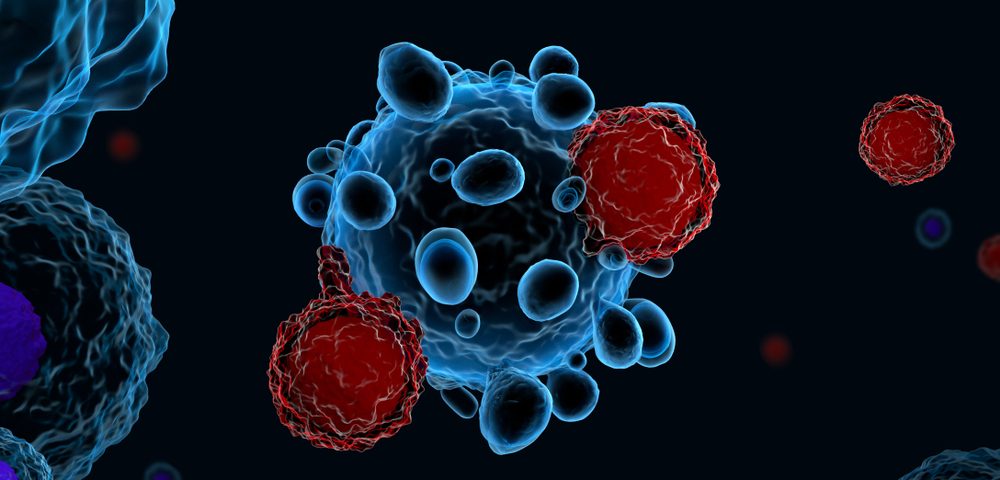The presence of specific subtypes of immune cells in the tumor environment of people with follicular lymphoma can predict how a patient’s immune system will respond to the disease, as well as survival outcomes, a study shows.
The study, “Mass Cytometry Analysis Reveals that Specific Intratumoral CD4+ T Cell Subsets Correlate with Patient Survival in Follicular Lymphoma,” was published in the journal Cell Reports.
“Follicular lymphoma is a type of blood cancer that mainly involves the lymph nodes in the body,” Zhi Zhang Yang, MD, PhD, first author of the study, said in a press release.
Lymph nodes are the major sites where immune cells, such as T cells, reside, so it is no surprise that follicular lymphoma is characterized by an extensive infiltration of T cells in its environment. These cells, however, are poorly functional.
Generally, chemotherapy and immunotherapy are effective at treating follicular lymphoma, and outcomes over the last decade have significantly improved. However, there is a subset of patients who consistently don’t do well on treatment.
Studies have shown that these poorly performing patients have an impaired immune response. While a high number of T cells in the tumor generally correlates with a favorable outcome in follicular lymphoma, T cells are composed of various subtypes, some of which can have detrimental effects.
Mayo Clinic hematologists set out to characterize the T-cell subsets present in the tumors of follicular lymphoma patients and whether they correlated to prognosis.
Researchers examined tumors from 31 newly diagnosed patients, as well as non-malignant control tissues from healthy individuals, to determine what types of T cells were present in these tumors.
They identified at least 12 subtypes of CD4+ T cells — cells that do not fight tumors directly, but prime other immune cells to do so — in the tumors, three of which were unique to follicular lymphoma biopsies compared to control tissues.
One type of T cell, known as a naive T cell, correlated with improved patient survival. Another subtype of T cell, which lacked two co-stimulatory receptors (CD27 and CD28), were enriched in follicular lymphoma and correlated with worse patient outcomes.
Receptors are proteins located on the surface of a cell that, when stimulated, carry out specific cellular activities. CD27 and CD28 are co-stimulatory, indicating that they are stimulated together to initiate a cellular effect.
The investigators think that given the important roles of CD27 and CD28, T-cell function is likely impaired by their loss. To add to this, researchers found that loss of CD27 or CD28 in T cells was correlated with lower levels of other T cell activation-related markers. Furthermore, these T cells displayed decreased growth.
“The presence of co–stimulatory receptors on the cell surface allows the immune system to better recognize and attack cancer cells,” Yang said. “We also found that, among patients with follicular lymphoma, those whose T cells were lacking co-stimulatory receptors experienced significantly shorter survival than patients whose T cells exhibited co-stimulatory receptors.”
Investigators said, “Taken together, our … results identified CD4+memory T-cell populations that are poorly functional due to loss of co-stimulatory receptor expression and are associated with an inferior survival in [follicular lymphoma].”
Yang adds that this research can have potential clinical implications.
“If we can implement a strategy to restore the expression of co-stimulatory receptors in patients with this subpopulation of T cells, we may be able to develop a new therapy for some patients with follicular lymphoma,” he said.


